FORWARD OPERATING BASE PROSPERITY, Iraq - It was a strange bit of irony that occurred just days before a scheduled first-aid training class when one of Cynthia Smith's employees suffered deep cuts to two of his fingers requiring a visit to the aid station here.
Smith said that accidents like this one, which resulted when the employee was operating a forklift in the post-exchange's receiving area, have been a rarity, but if something similar were to happen again, she believes her employees will be better prepared to handle it thanks to the training they received from the medics of Company C, 15th Brigade Support Battalion, 2nd Brigade Combat Team, 1st Cavalry Division, Sept. 17.
First aid training is an annual requirement for all Army and Air Force Exchange Service employees, Smith, who is a native of Statesboro, Ga., explained, and while she and the other managers were up to date on the training, several of her newer employees had yet to receive the training.
By offering to conduct the training for them, Pfc. Amanda Ouillette, said that it not only allows them to meet their training requirements, but it also benefits every one on the FOB.
"It helps us a little bit," Ouillette, who is originally from Detroit, explained. "That way they can start a little bit of treatment before we get there so there's something - the patient gets treatment as fast as possible."
Ouillette, along with Spc. Jennifer Havenar, served as the two primary instructors for the class, which covered basic life-saving techniques to include, airway obstruction, controlled bleeding and treatment for shock and burns.
The two hour training session was primarily hands-on with the AAFES employees learning how to apply various types of bandages and tourniquets, as well as use other first aid supplies, all of which can be found in the numerous red and white medical boxes that are strategically placed around the FOB.
The casualty collection point boxes are packed with medical supplies, and the boxes are latched shut and secured with plastic zip-ties, which can be cut away if somebody needs to access the supplies.
"Everything we brought can be found in the CCP boxes," Baytown, Texas native, Havenar, said. "They're basically put in locations around the FOB in order to be best located for the whole FOB so people can get easy access to medical supplies."
Whether they are military or civilian, Havenar said that it is important that everyone on the FOB is familiar with basic life saving skills and tools.
"It is good for everybody - it's not just for military personnel," she said. "If we get mortared or if anything happens on this FOB, everyone should be prepared."
Havenar also added that her company is willing to offer first aid training to any person or group at FOB Prosperity that requests it.
"The more people that know about basic life support, the better," she said. "It's simple steps to save someone else's life."
Although her employee's injury wasn't life-threatening, Smith said it's best to be prepared for the worst, and she feels more comfortable now knowing that all of her employees have a basic knowledge of first aid.
"It makes a difference when you have the training and when you don't," she said. "You never know when something may happen again."
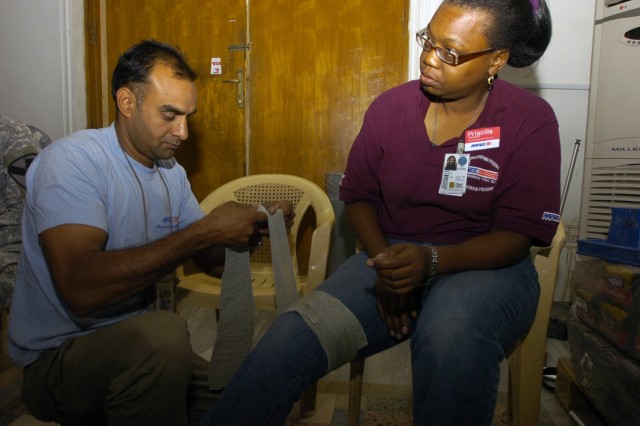
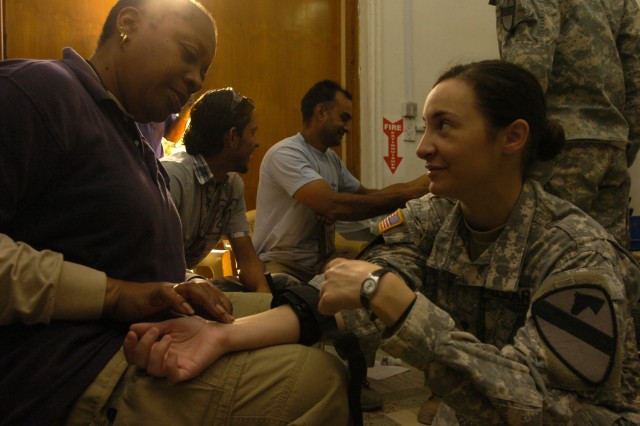
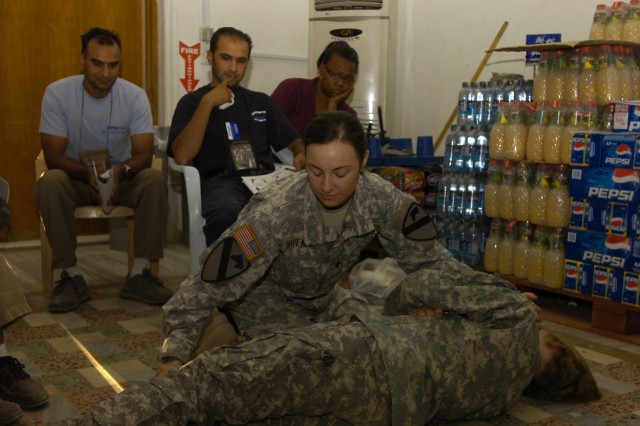
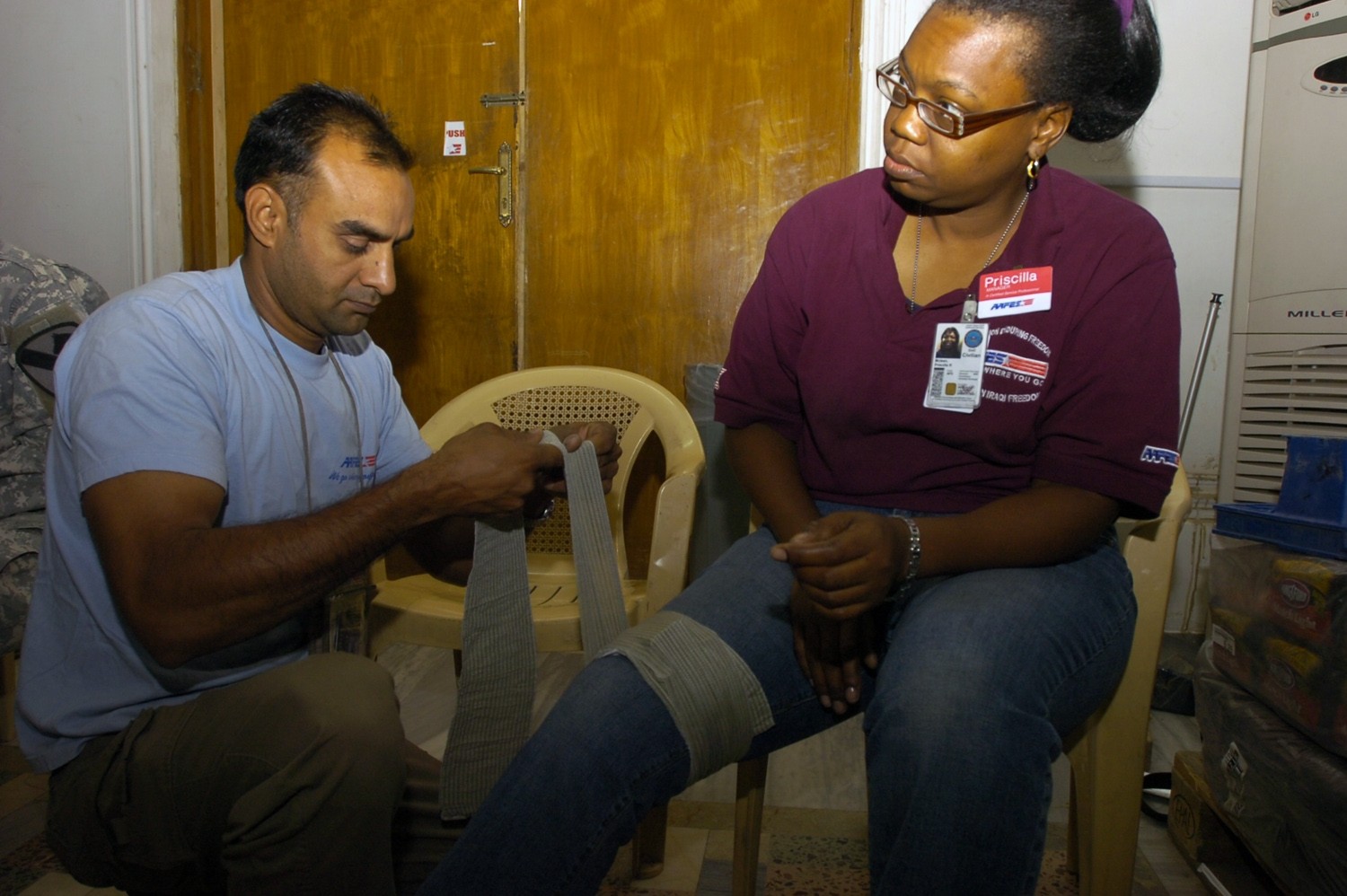
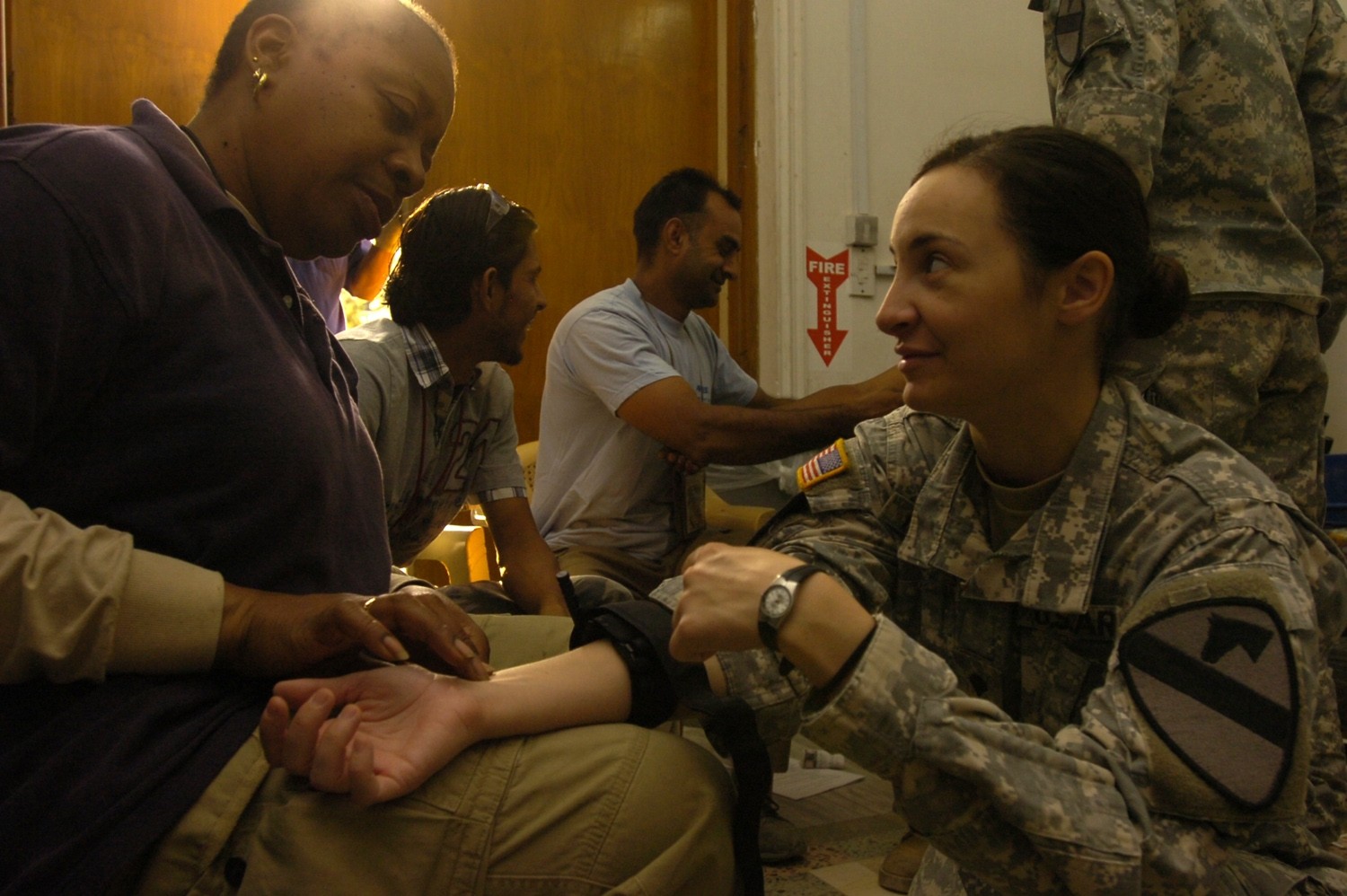
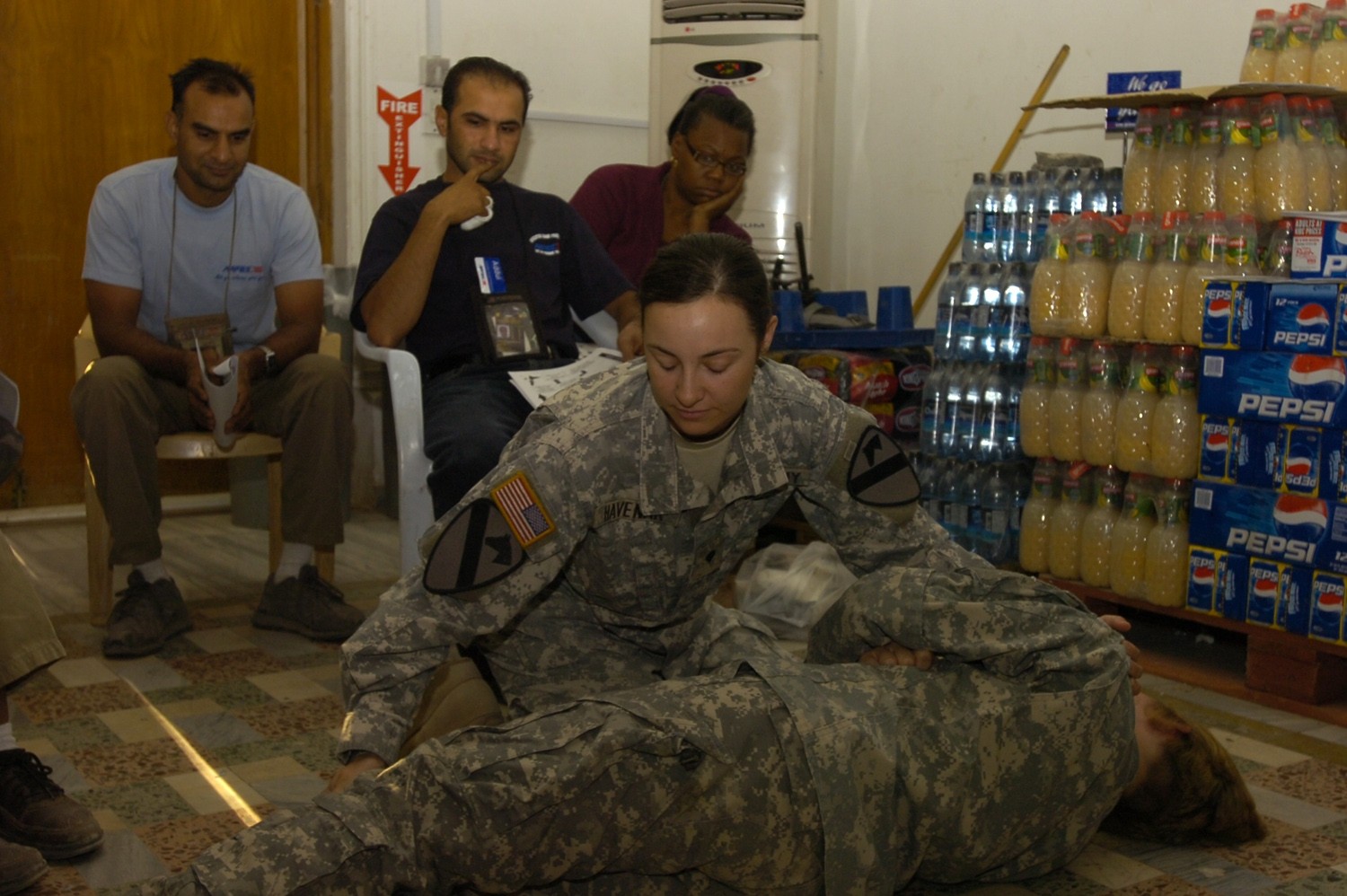
Social Sharing